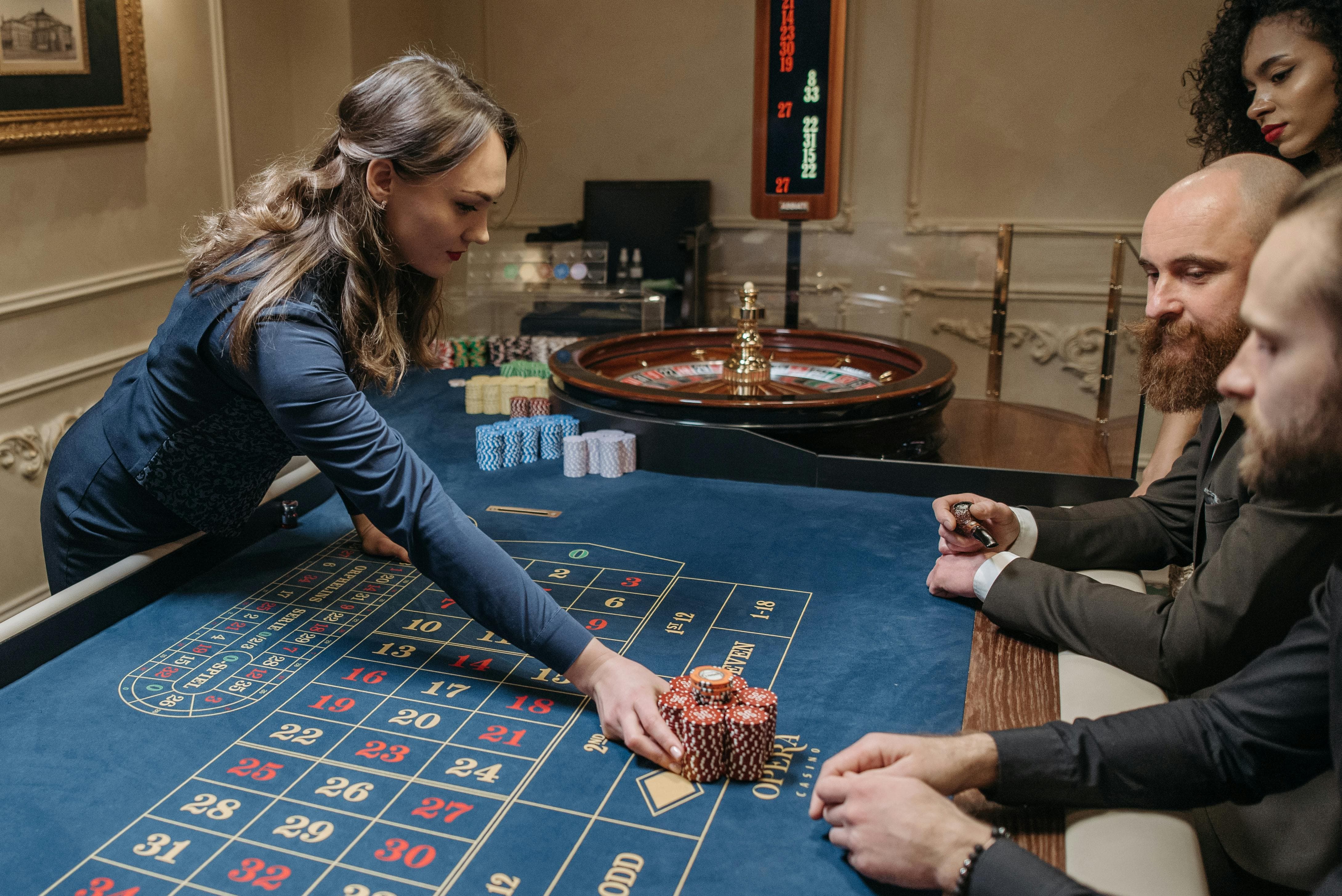The main warning signs of gambling addiction include obsession, rising bets, failed attempts to quit, secrecy, and gambling to escape stress. Financial problems, chasing losses, and emotional distress also signal a deeper issue.
This addiction doesn’t always look extreme at first, but the warning signs build quietly and can be easy to miss. What starts as a habit can shift into something harder to manage, especially when life stress or financial strain is involved.
This article outlines eight signs that gambling may be causing more harm than you think and how to tell when it’s time to seek help.

1. Obsession with Gambling
Gambling addiction is a behavioral health disorder that often begins casually but can quickly turn into a persistent obsession. People struggling with it may constantly think about gambling, replaying past wins or losses, planning the next opportunity to bet, or feeling agitated when they can't gamble.
In the United States, an estimated 1.2% to 6.2% of adults meet the criteria for problem gambling, with Ohio reporting about 1.4%. Aside from being a bad habit, this fixation can strain relationships, interfere with sleep, and affect emotional well-being, often leading to anxiety and social withdrawal.
Spotting this pattern early helps clarify how to stop gambling before deeper harm sets in. If gambling dominates your thoughts or disrupts daily routines, it may be time to explore healthier ways to cope or consider gambling addiction therapy as a structured path toward recovery.
2. Need to Bet Increasing Amounts
As gambling becomes more frequent, the urge to bet larger amounts often grows. This need for higher stakes to feel the same excitement is a key sign of gambling addiction. Like substance use, the mind adapts, and what once felt thrilling at low stakes now feels flat, pushing the person toward riskier bets.
Gambling disorder symptoms like this escalation increase the chance of major financial losses and emotional strain. If you catch yourself constantly raising the stakes, it’s a warning to pause. Setting clear betting limits, getting financial advice, and looking into support options for recovery from gambling addiction can help you regain stability before deeper damage sets in.
3. Failed Attempts to Stop or Cut Back
Many people with gambling addiction find it difficult to stop, even after deciding to quit or cut back. You might make promises to yourself or others, only to fall into the same pattern.
If this sounds familiar, don’t lose hope. Recovery is possible, and acknowledging the struggle is a key first step.
Support can take different forms, including:
- Using self-exclusion tools to block access to gambling sites
- Talking to a professional at a gambling rehab for structured support
- Creating a routine that includes meaningful, healthy activities
Gambling addiction recovery works best with a plan, and you're not expected to do it alone.
4. Lies, Secrets, or Hiding Behavior
Gambling addiction often shows up through secrecy, like hiding receipts, lying about losses, or downplaying how often gambling happens. Someone affected might get defensive when asked or deny there's a problem, even when the signs are obvious.
These are common gambling disorder symptoms. They’re less about dishonesty and more about shame, fear, or worry about being judged. When hiding gambling becomes a pattern, it signals that the behavior has moved beyond recreation.
If you or someone close to you starts lying to protect gambling habits, it may be time to seek professional support or open up to someone you trust.
5. Negative Impact on Life and Escape Gambling
Gambling can start taking priority over work, relationships, and daily responsibilities. Many people with addiction use it to escape stress, sadness, or anxiety. But gambling as a coping strategy often makes things worse over time.
Instead of providing relief, it deepens the cycle of avoidance and adds new problems like:
- Financial instability or debt
- Conflict with family or friends
- Emotional withdrawal or loneliness
Recovery from gambling addiction begins by addressing the root causes, not just the behavior. Whether the trigger is stress or another mental health challenge, support can help you break the cycle and replace gambling with healthier, lasting ways to cope.
In Ohio and Pennsylvania, you're not alone because local help is available. New Horizons Recovery Centers provides evidence-based care for adults facing gambling addiction and related mental health challenges.
6. Chasing Losses Continually
The urge to win back lost money, known as “chasing losses,” is common with gambling addiction. It can lead to riskier bets and more severe losses, creating a cycle that’s hard to break. The desire to ‘make things right’ only pushes people deeper into debt and distress.
Chasing almost never leads to breaking even. Instead, accepting the loss and stepping away from the cycle creates space for real change. Support from loved ones, financial guidance, or help from a gambling rehab can provide structure and relief, helping you break the habit and rebuild stability.

7. Gambling While Distressed
Many people with gambling addiction turn to betting during moments of sadness, anxiety, or stress, using it as a quick escape. Emotional distress is one of the strongest triggers for problem gambling, especially when it feels like the only coping mechanism available.
This habit, however, often worsens both emotional and financial struggles. Facing those feelings directly, with support from peers or through gambling addiction therapy, offers a more sustainable way forward. Instead of temporary relief, it builds emotional strength and creates space for lasting recovery.
8. Financial and Legal Consequences
As gambling addiction worsens, financial problems often follow. People may take out high-interest loans, fall behind on bills, or spend money meant for essentials just to keep gambling. In extreme cases, some may turn to illegal actions like theft or fraud to cover losses.
Common financial and legal impacts include:
- Growing credit card or loan debt
- Missed rent, mortgage, or utility payments
- Strained relationships over money
- Possible legal trouble tied to financial desperation
Learning how to stop gambling early can prevent long-term damage. Financial counseling, legal advice, and support networks offer practical tools to rebuild control and protect your future.
When to Seek Help for Your Gambling Addiction
Recognizing the signs of gambling addiction can be the first step toward lasting change. If gambling is affecting your finances, relationships, or peace of mind, support is available. Access to effective treatment, like gambling rehab in Pennsylvania, can help you rebuild structure and stability before things worsen.
New Horizons Recovery Centers offers personalized care grounded in understanding and evidence-based methods. Whether you're ready to take action or just need to talk, our team is here to support your next step forward. Call us today.

-ink.jpeg)
-ink.jpeg)
-ink.jpeg)
-ink.jpeg)
-ink.jpeg)
-ink.jpeg)
